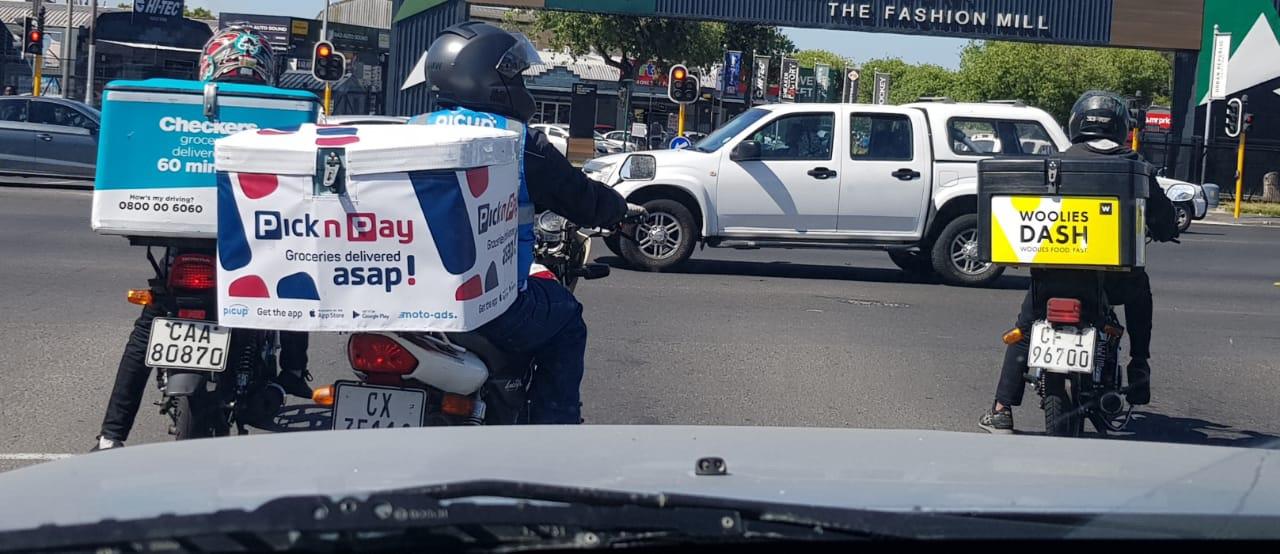South Africa’s Departments of Home Affairs and Employment and Labour are setting their sights on high-risk employment sectors, with a particular focus on the on-demand delivery industry, which could lead to a significant shake-up for services like Bolt, Checkers Sixty60, Pick n Pay asap!, and Uber Eats. The government is stepping up efforts to combat illegal employment practices within the sector, aiming to identify and address undocumented or fraudulently documented workers within these high-demand services.
In recent remarks responding to parliamentary questions, Employment and Labour Minister Nomakhozana Meth indicated that the government is planning targeted “high-impact” inspections to root out illegal workers in high-risk sectors. These inspections, carried out quarterly, focus on industries with a history of employing undocumented foreigners. The next round of inspections is expected to commence in November and December, heightening the pressure on companies relying on international workers in the on-demand delivery space.
Rising Concerns Over Fraudulent Documentation
While major companies within the delivery sector—such as Uber Eats and Spar—conduct background checks and vetting processes for drivers, Home Affairs reports that widespread fraud continues to hamper efforts. This has led to growing concerns that asylum documents and work permits held by some drivers may not be genuine.
The Motorcycle Safety Institute of South Africa founder, Hein Jonker, also raised safety concerns, pointing out that many foreign delivery drivers may lack proper motorcycle licensing or training, as they come from countries where car licenses are often deemed sufficient for operating two-wheeled vehicles.
Industry Responses and Compliance Efforts
To address these risks, companies like Spar have tightened their compliance checks, including additional verifications to ensure adherence to immigration laws and safety standards. Spar’s PR manager, Mpudi Maubane, noted that the company goes beyond the basic requirement by conducting further checks to adhere to Regulation 110 (1) of the National Road Traffic Regulations for all foreign national drivers.
On its own “Deliver with Uber Eats” page, Uber outlines stringent requirements for identification submissions, explicitly rejecting copies or improperly framed IDs. The company specifies that only the following documents are acceptable:
- South African ID book or card
- South African Passport
- Non-South African Passport + Permit
- Asylum Seeker/Refugee Permit
- Refugee ID
Despite these measures, verifying the authenticity of these documents remains challenging. A recent inspection of businesses employing foreign nationals revealed numerous instances of fraudulent permits. In response, some business owners have proactively begun to verify staff documents through Home Affairs’ email and SMS services. After obtaining employee consent, some directors have been sending documents to Home Affairs for verification via the ASMVerifications@dha.gov.za channel.
A Gauteng business owner disclosed that several documents submitted for verification were found to be fake, compelling them to terminate employment for these individuals. The process, however, is cumbersome, as the origins of the fake permits remain unidentified. For South African IDs, Home Affairs’ SMS verification service has helped some employers confirm employee information, yet inconsistencies continue to arise.
What’s Next for South Africa’s Delivery Industry?
The government’s increased scrutiny of the on-demand delivery industry aims to curb illegal employment practices while ensuring greater road safety. With the next round of raids imminent, companies may need to reevaluate their onboarding and verification processes to remain compliant. This regulatory shift could impact employment structures within the sector, especially for businesses that rely heavily on foreign drivers.
The crackdown represents a growing commitment by the South African government to hold employers accountable and ensure the legality of all workers within the industry. As the delivery sector awaits these upcoming inspections, companies are expected to bolster their verification practices, potentially reshaping the landscape of on-demand delivery employment in South Africa.












